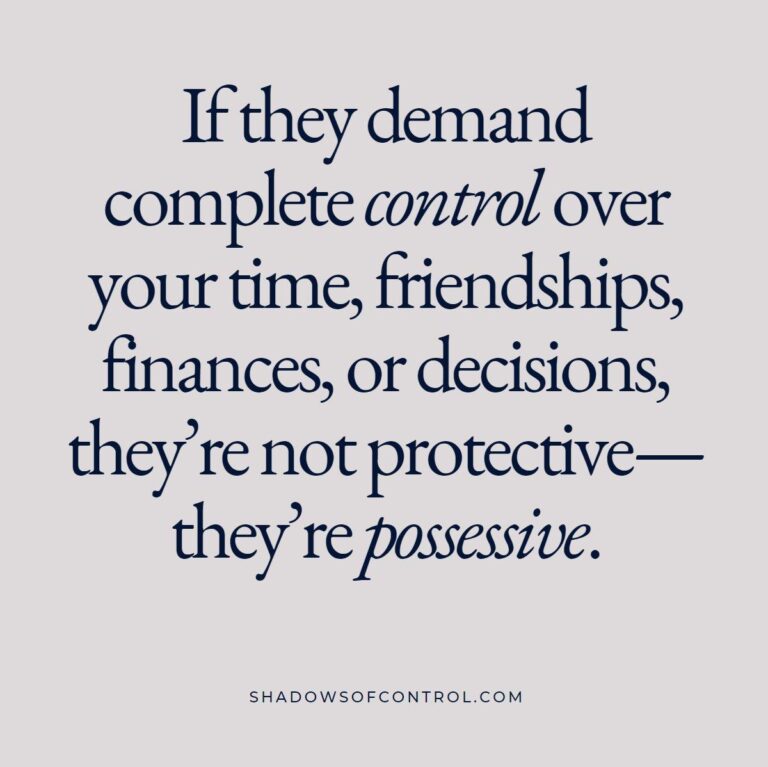Have you ever felt like someone’s “kind” words or “helpful” advice left you more confused or uneasy than comforted? Sometimes, what looks like genuine care and concern can actually be a clever disguise for manipulation. It’s not always easy to tell the difference—after all, who wants to question someone who seems to have their best interests at heart? In this post, we’ll explore some subtle signs that “care” might actually be controlling, and share tips on how to protect your boundaries while staying open to sincere support. Let’s dive in and learn how to spot the difference together!
Table of Contents
- Understanding the Subtle Signs of Manipulative Care
- Recognizing Emotional Triggers Behind False Concern
- Setting Healthy Boundaries Without Guilt
- Practical Tips for Responding to Manipulative Behavior
- Future Outlook
Understanding the Subtle Signs of Manipulative Care
When someone cloaks their manipulation in the guise of care, it often feels warm and reassuring at first. Yet, beneath this facade, there lies a subtle erosion of your autonomy. These behaviors don’t usually announce themselves loudly; instead, they manifest through gentle prodding, repeated “concerned” questions, or unsolicited advice that seems designed to steer your decisions. Manipulative care typically involves:
- Excessive monitoring framed as ‘looking out for you’
- Frequent reminders of your ‘responsibility’ to them or to the relationship
- Expressing worry in ways that make you feel guilty for wanting independence
Recognizing these tactics allows you to create healthy boundaries without invalidating the other person’s intent. True care uplifts and respects your choices, rather than subtly binding you with strings of obligation. When support carries an undertone of control, it’s crucial to listen to your instincts and reassess the dynamics. You deserve relationships where concern is free of hidden agendas, and your freedom is honored alongside empathy.
Recognizing Emotional Triggers Behind False Concern
Sometimes, what seems like genuine care is actually a clever mask for manipulation. Emotional triggers such as insecurity, guilt, or fear can be exploited by those pretending to be concerned. They subtly tap into your vulnerabilities to steer decisions or emotions in their favor. This makes it essential to pause and reflect: is this concern helping me grow, or is it nudging me into self-doubt or obligation? Recognizing this difference can save you from falling prey to disguised manipulation.
Look out for specific patterns that tend to accompany false concern:
- Excessive questioning meant to unsettle rather than understand.
- Conditional kindness that makes your worth feel dependent on compliance.
- Frequent reminders of past mistakes, disguised as advice but really meant to guilt-trip.
- Overstepping boundaries under the guise of “just caring.”
Being aware of these signs empowers you to set healthy limits and protect your emotional well-being. Remember, true care supports your freedom—it doesn’t chain it.
Setting Healthy Boundaries Without Guilt
Establishing clear and respectful boundaries is a form of self-respect, not selfishness. When you start recognizing the difference between genuine care and manipulation, it becomes easier to say “no” without that nagging guilt. Remember, your feelings and time are valuable. You have the right to protect your emotional space, even from those who claim to act out of concern. Embracing your boundaries allows you to maintain healthier relationships where mutual respect thrives, rather than one-sided control.
To assert your limits confidently, try these approaches:
- Use clear and simple language: Avoid over-explaining; a firm “I need some time to think” is enough.
- Stay consistent: Consistency helps others understand and respect your limits over time.
- Practice self-compassion: Remind yourself that setting boundaries is a healthy, necessary act, not a rejection of the other person.
Practical Tips for Responding to Manipulative Behavior
When faced with manipulative behavior disguised as care, it’s essential to trust your instincts and maintain healthy boundaries. Start by taking a step back before reacting—this pause helps you analyze the situation objectively. Remember, genuine concern respects your autonomy, so if someone’s actions make you feel pressured or guilty to comply, that’s a red flag. It’s helpful to ask yourself whether the person’s care is accompanied by consistent respect or if it shifts into control. Practicing clear communication by calmly voicing your feelings can disarm manipulation tactics effectively.
Another practical approach is to keep a mental checklist of common manipulation signs such as:
- Guilt-tripping disguised as concern
- Excessive flattery used to lower your guard
- Playing the victim to shift blame or gain sympathy
- Inconsistent stories to confuse or control the narrative
By recognizing these patterns, you can respond assertively without feeling overwhelmed. Firmly stating your limits while offering empathy—“I appreciate your care, but I need to make this decision myself”—can help maintain respect on both sides and defuse tension before manipulation takes root.
Future Outlook
Thanks for sticking with me through this deep dive into spotting manipulation disguised as care and concern. It’s definitely not always easy to tell when someone’s being genuine or when they might have an angle. But with a little awareness and trust in your own feelings, you can start to see through those tricky situations. Remember, true care uplifts and respects your boundaries—it never makes you feel uneasy or guilty. So, keep these tips in mind, listen to your gut, and don’t be afraid to set clear boundaries. You deserve relationships that are honest, supportive, and full of real care. Until next time, take care of yourself!

